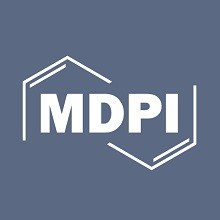
دانلود مقاله ساختار برنامه فرزندپروری، موانع بالقوه و تسهیل کننده ها
خلاصه
1. معرفی
2. مواد و روشها
3. نتایج
4. بحث
5. نتیجه گیری ها
منابع
Abstract
1. Introduction
2. Materials and Methods
3. Results
4. Discussion
5. Conclusions
References
چکیده
والدین شدن یک انتقال چالش برانگیز است و ممکن است عوامل استرس زا ایجاد شوند. هدف این بررسی محدوده، ترسیم از متون، ساختار، موانع بالقوه و تسهیلکنندههایی است که باید هنگام اجرای برنامه فرزندپروری برای والدین کودکان تا 3 سال در نظر گرفته شوند. این روش از روش JBI پیروی می کرد و شامل مطالعات با والدین کودکان تا 3 سال (شرکت کنندگان)، مطالعاتی در مورد ساختار برنامه فرزندپروری، موانع بالقوه آن، و تسهیل کننده ها (مفهوم) در مراقبت های بهداشتی یا محیط اجتماعی (زمینه) بود. طرحهای مطالعاتی کیفی و/یا کمی و انتشارات ادبیات خاکستری بین سالهای 2016 و 2021 واجد شرایط بودند. جستجو در CINAHL Plus با Full Text، MEDLINE با Full Text و PubMed در سه مرحله انجام شد. همچنین در OpenGrey، ProQuest، پرتغالی Open Access Science Repository و Google Scholar انجام شد. چهارده مقاله انتخاب شد. جنبه های زیر در رابطه با برنامه های فرزندپروری شناسایی شد: مزایا. عناصر ساختاری که باید در نظر گرفته شوند؛ عوامل تسهیل کننده و موانع احتمالی توسعه آن و ابزارهای اندازه گیری برای ارزیابی برنامه. برنامه های فرزندپروری راه های مهمی برای کمک به جامعه ای سالم، پایدار و تاب آور هستند. باید با افراد، گروه ها و جوامع سازگار شود. آنها برای والدین، فرزندان و جامعه ارزش می افزایند و باید به دقت با نیازهای گروه سازگار شوند.
توجه! این متن ترجمه ماشینی بوده و توسط مترجمین ای ترجمه، ترجمه نشده است.
Abstract
Becoming a parent is a challenging transition, and stress factors may arise. This scoping review aims to map, from the literature, the structure, potential barriers, and facilitators to be considered when conducting a parenting programme for parents of children up to 3 years old. It followed the JBI methodology and included studies with parents of children up to 3 years old (Participants), studies about parenting programme structure, its potential barriers, and facilitators (Concept) in the healthcare or community setting (Context). Qualitative and/or quantitative study designs and grey literature publications between 2016 and 2021 were eligible. The search was performed in three stages in CINAHL Plus with Full Text, MEDLINE with Full Text, and PubMed databases. It was also conducted in OpenGrey, ProQuest, Portuguese Open Access Scientific Repository, and Google Scholar. Fourteen articles were selected. The following aspects were identified regarding parenting programmes: benefits; structuring elements to be considered; facilitating factors and possible barriers to its development, and measurement instruments to assess the programme. Parenting programmes are important ways to contribute to a healthy, sustainable, and resilient society. It should be adapted to individuals, groups, and communities. They add value to parents, children, and society and should be carefully adapted to the group’s needs.
Introduction
Healthy development during childhood promotes vigorous adulthood, contributing to a productive and sustainable society. A family household is where children establish first relationships, attachment, and continuous interaction, learn to trust and become acquainted with basic social rules [1]. However, it is also where most child abuse occurs, often caused by a parent [2–6]. This toxic stress impact on the early years triggers adverse adulthood outcomes and shortens life expectancy [7–10].
Different kinds of stress can be induced: positive, tolerable, and toxic. The first is a normal part of healthy functioning; the second is more intense and long-lasting but can be buffered by supportive relations allowing the nervous system to get back on track; toxic stress arises from prolonged adverse childhood experiences (ACEs) such as reiterated abuse, chronic neglect, exposure to violence, or accumulated economic hardship in the family [8].
Parents and family are those closest to the child and are expected to be the best caregivers [11]. However, cumulative toxic stress can occur without appropriate parental support, which may cause development disruption [12] and promote morbidity before adulthood and early death [8,12].
Conclusions
This study provides an overview of parenting programmes, and the results guide several recommendations for the future. The results of this article may help public health professionals to plan evidencebased parenting programmes with better outcomes for families, children, and society. These results will guide professionals in constructing more sustainable and effective parental programmes.
Considering the various benefits, such as increased parent competence, self-efficacy, lower parental stress, lower depression symptoms, and child behaviour problems, implementing parental programmes is an added value for parents, children, and society. However, professionals should be aware of the barriers identified in this study (related to distance strategies and individual needs) and carefully adapt any programme to individual, group or community needs.
Parenting programmes are important ways to contribute to a healthy, sustainable, and resilient society. They benefit parents by reducing signs of stress and depression and increasing their self-efficacy and social behaviour, which leads to positive changes in childcare. In addition, they bring benefits to the parent–child relationship by relieving social pressure from parents, allowing a focus on the relationship with the child as an individual. Finally, parenting programmes also positively affect society through knowledge sharing, networking, and support so that children can grow up in healthy environments and maximise their full potential.
